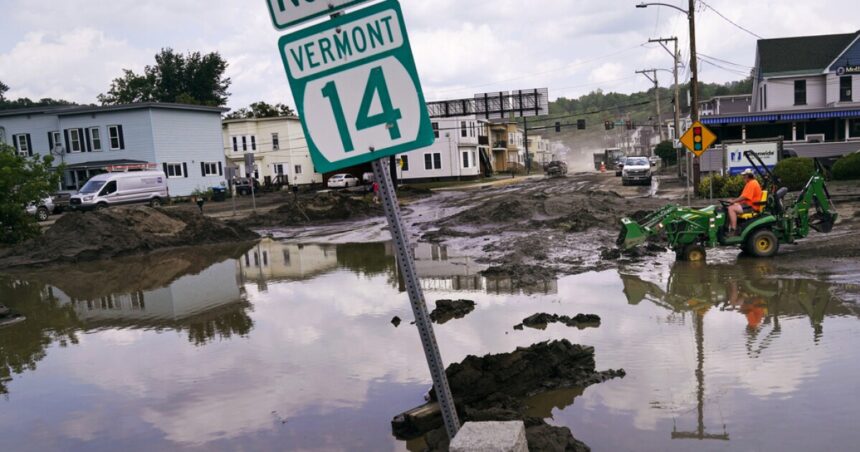Vermont has made history by being the first state to pass a law requiring fossil fuel companies to contribute to the cost of the damage caused by climate change. This decision came after the state experienced devastating summer flooding and other extreme weather events.
Despite his concerns about the financial implications and potential legal battles, Republican Governor Phil Scott allowed the bill to become law without his signature. He acknowledged the urgent need to address the impacts of climate change on the state.
In a letter to lawmakers, Governor Scott expressed understanding for the desire to secure funding to mitigate the effects of climate change. He noted the challenges of Vermont taking on “Big Oil” on its own but emphasized the necessity of action.
Last summer’s flooding caused severe damage to areas like Montpelier, Barre, and southern Vermont, leading to significant losses for businesses and homeowners. The legislation mandates a report on the total cost of greenhouse gas emissions from fossil fuel companies in Vermont over a specific period.
This polluter-pays model aims to hold fossil fuel companies accountable for their contributions to climate change-related damages. The funds raised will be used for various purposes such as improving infrastructure and promoting energy efficiency.
Environmental advocates have praised Vermont’s initiative, while some in the oil and gas industry have raised concerns about the legislation. Despite expected legal challenges, Vermont lawmakers are committed to pursuing this path to address climate change.
Maryland, Massachusetts, and New York are also exploring similar measures, indicating a growing trend towards holding fossil fuel companies accountable for the impacts of climate change.
It remains to be seen how this legislation will play out in the face of potential legal battles and industry opposition, but Vermont is determined to take action against climate change and its consequences.




